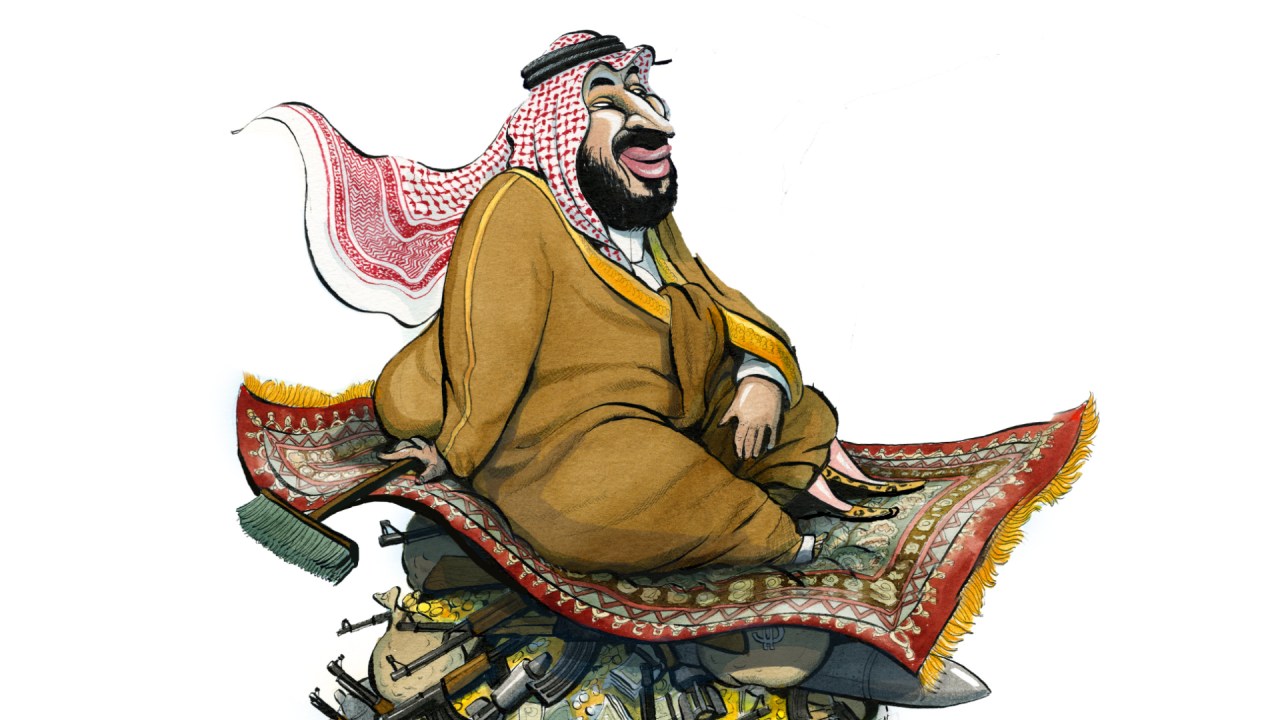Mohammed bin Salman, the heir to the Saudi throne, certainly leads a charmed life. He spent several days in Paris last month meeting the French president Emmanuel Macron. This has now been followed up with a reported invitation from Rishi Sunak to visit Britain this autumn. It would be the first such high-level diplomatic trip since the Saudi crown prince was accused of being behind the killing of the dissident Jamal Khashoggi. He has always denied involvement.
The timing of his visit could hardly be worse: it would roughly coincide with the fifth anniversary of Khashoggi’s murder, serving to confirm that the brutal killing is all but forgotten and that the Saudis are back in the diplomatic fold. It is a mistake for the government to be rolling out the red carpet for the unrepentant Saudi leader in this way.
Cynics will no doubt try to justify this as no more than business as usual. After all, a number of ministers have been to Saudi Arabia in recent years, and senior Saudis, including the foreign minister Prince Faisal bin Farhan, have visited Britain. The seasoned logic of realpolitik will be used to explain it all away. Britain needs to strengthen its ties with the desert kingdom as it seeks to attract investment from the oil-rich Gulf region. Saudi Arabia is an important trading partner in the Middle East, a buyer of western arms and a bulwark against Iranian expansion. Britain simply cannot afford to stand aloof and so on. Yet this approach amounts to all carrot and no stick.
So far, where’s the incentive for the Saudis to fall into line? The country’s role during the Ukraine war remains controversial, and it has been cooperating with Russia, cutting output to keep oil prices high. This has indirectly boosted Vladimir Putin’s war effort. This is not the behaviour expected of an ally and it certainly doesn’t merit being brought back into the diplomatic embrace of western nations.
The crown prince’s invitation to London also raises troubling questions about the direction of Britain’s foreign policy under Rishi Sunak
There are other problems. Controversy is growing over Saudi Arabia’s alleged sportswashing activities and the kingdom’s financial involvement across sport. This includes the Saudi-backed takeover of Newcastle United, the huge sums now being offered to footballers for playing in the Saudi pro league, and the destabilising impact in professional golf. The Saudi LIV tour’s merger with the PGA is now being investigated by the US Senate hearings, following claims that it breaches antitrust laws. Nor can concerns about Saudi human rights abuses simply be brushed under the carpet. The country executed 196 people last year. According to Amnesty International it is the highest number of recorded executions in the last 30 years. Torture is widespread in Saudi jails. Little mentioned is the scandalous case of Salma al-Shehab, the Leeds PhD student who is serving a 34-year jail sentence for merely tweeting support for women’s rights in Saudi Arabia. Cases like hers make it hard to give much credence to the regime’s claims of modernisation and reform under MBS.
The crown prince’s invitation to London also raises troubling questions about the direction of Britain’s foreign policy under Rishi Sunak. The truth is that very little is really known about Sunak’s ‘world view’, or indeed if he has one. He came into office with no real high-level ministerial experience beyond the Treasury and his background before entering politics was in financial services. Sunak’s speech last November, at the annual Lord Mayor’s Banquet in London, was his first major address on Britain’s role in the world. ‘Robust pragmatism’ is the phrase he used to describe his foreign policy approach. There was also talk of liberal values. ‘Freedom and openness have always been the most powerful forces for progress,’ he declared. It is hard to imagine such sentiments going down well in any fireside chat in Downing Street with the Saudi heir to the throne.
Inviting Mohammed bin Salman to London smacks far too much of pragmatism and far too little in the way of robustness. It would have been better to wait a little longer. In the meantime, MBS needs to do much more to demonstrate that he is a reliable ally of the West and show some respect for the values of freedom and human rights.








Comments